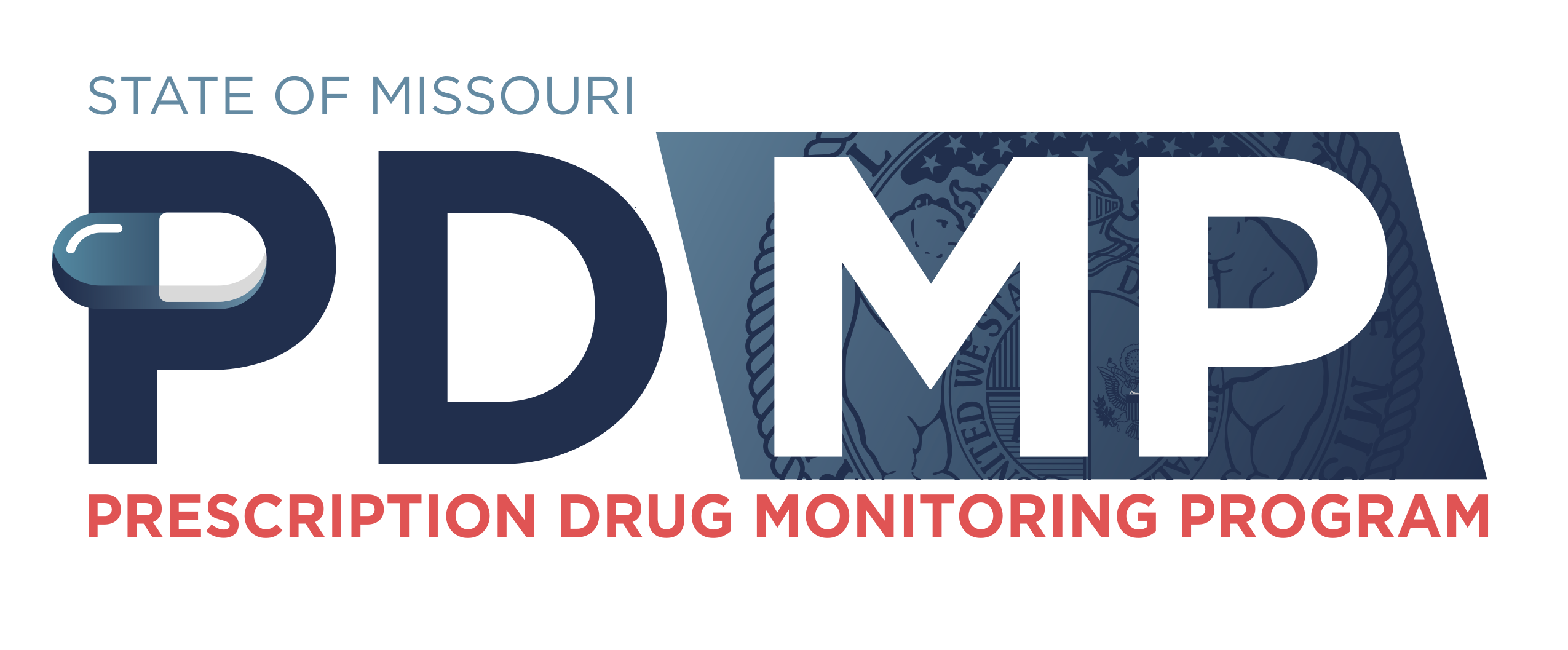New data submitter accounts can be created with PMP Clearinghouse at:
https://pmpclearinghouse.net/registrations/new
New Pharmacist and Prescriber registration for PMP AWARE can be performed at:
https://missouri.pmpaware.net/
PMP AWARE training materials, like the User Guide and other tutorial resources are available within the PMP AWARE application and may also be found under:
Data submitters can access the MO Data Submission Guide for PMP Clearinghouse training or review the PMP Clearinghouse FAQs at:
https://pmpclearinghouse.zendesk.com/hc/en-us
Yes. Access to the Missouri PDMP is limited to only those health care providers licensed, accredited, or certified by the State of Missouri per 195.600, RSMo.
Starting on 12/13, new integration requests can be made at the following site:
https://connect.bamboohealth.com
Medical residents should supply the following information when applying for access to the Missouri PDMP:
Medical resident accounts should not be updated until the provider has his or her personal DEA number for the state of Missouri. When that is available, medical residents should provide the following:
No. Under Section 195.600.2, RSMo., the Joint Oversight Task Force for Prescription Drug Monitoring shall have authority to supervise the collection and use of patient dispensation information for prescribed Schedule II, III, or IV controlled substances as submitted by dispensers in the State of Missouri.
No. Interstate sharing of data is not allowed under 195.600, RSMo.
Missouri will utilize ASAP version 4.2 for the statewide PDMP.
The purpose of a PDMP is to reduce abuse and misuse of controlled substances such as opioids by making dispensation information for such substances available to prescribers, dispensers, and health care providers.
Yes, all other states have legislation for similar systems.
PDMPs are created according to laws passed in each state. Missouri’s PDMP is being developed in accordance with Missouri law (Section 195.600, RSMo).
By making dispensation information available, PDMPs can help prescribers, dispensers, and health care providers identify patients who may be misusing prescription opioids or other controlled substances and who may be at risk for overdose.
When a pharmacy dispenses a schedule II, III or IV controlled substance, it submits information about the dispensation to the PDMP. The PDMP makes the information available for practitioners and pharmacists to view when they query the system. Information in the PDMP provides a more complete view of a patient’s prescription history and aids prescribers and dispensers in their decision-making processes.
Beginning on August 28, 2023, an individual’s dispensation information will be maintained for a maximum of three years from the date of dispensation. After this three year period, the information will be deleted from the program.
Missouri law does not mandate providers to check the PDMP before writing or dispensing a prescription. However, the Substance Use-Disorder Prevention that Promotes Opioid Recovery and Treatment (SUPPORT) for Patients and Communities Act requires the prescriber to check the PDMP prior to prescribing a controlled substance (Schedule II, Schedule III, or Schedule IV) to a MO HealthNet participant. Healthcare providers are strongly encouraged to utilize the PDMP before finalizing prescription decisions for patients.
Missouri’s PDMP law (Section 195.600, RSMo) requires the following information to be submitted to the PDMP. No information can be added to this list without a change to the PDMP law.
1. The pharmacy’s Drug Enforcement Administration (DEA) number;
2. The date of the dispensation;
3. The following, if there is a prescription:
(a) The prescription number or other unique identifier;
(b) Whether the prescription is new or a refill; and
(c) The prescriber’s DEA or National Provider Identifier (NPI) number;
4. The National Drug Code (NDC) for the drug dispensed;
5. The quantity and dosage of the drug dispensed;
6. The patient’s identification number including, but not limited to, any one of the following:
(a) The patient’s driver’s license number;
(b) The patient’s government-issued identification number; or
(c) The patient’s insurance cardholder identification number; and
7. The patient’s name, address, and date of birth.
No. Veterinarians are exempted from reporting in Section 195.600.16, RSMo.
Yes. Once the system is operational, there will be a process where individuals may request their specific dispensation information that has been reported to the PDMP.
